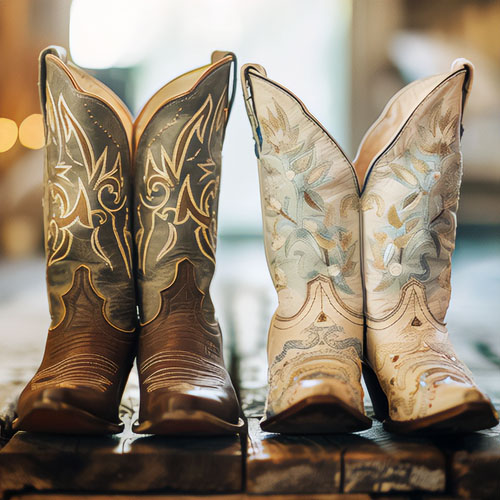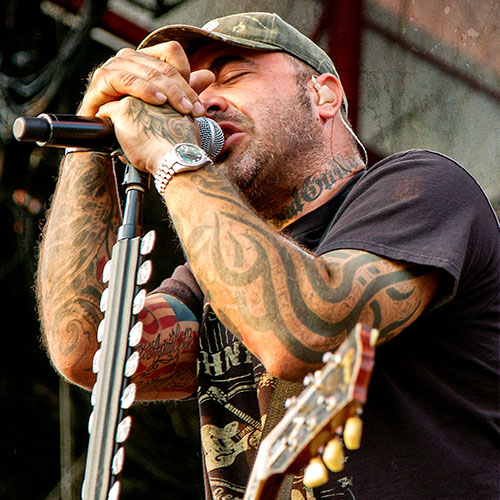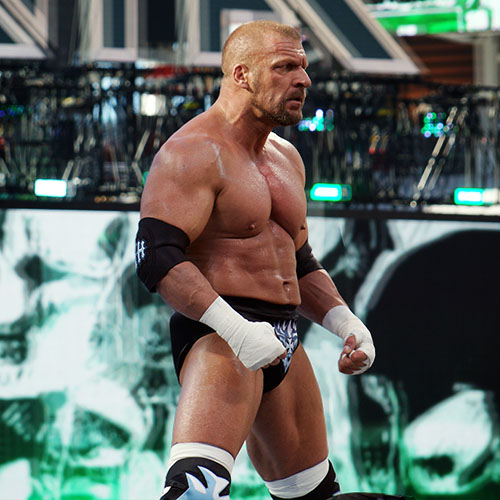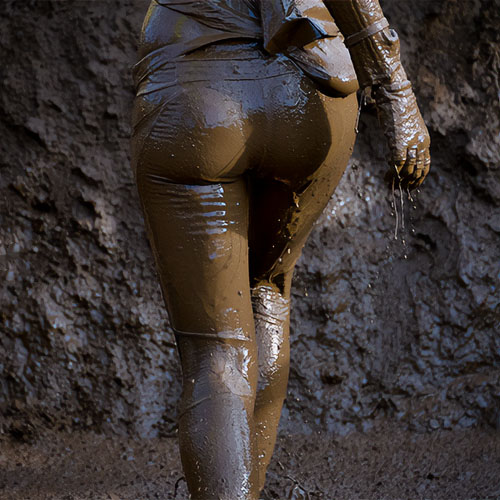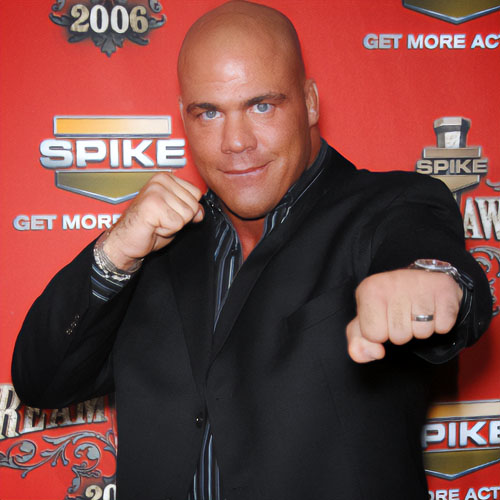History as related by “The Mick” in the style you would expect coming from one sporting such a moniker
My Favorite Summer, 1956
Let me first clear up some possible misunderstandings about my choice of 1956 as my favorite summer. When I say that was my favorite summer, I’m not saying it was my favorite team, or the most enjoyment I ever had, or the best team I ever played on.
No — 1956 was my favorite summer because that was when I put everything together and, for the first time, had finally done the things that a lot of people, particularly Casey Stengel, predicted I would do when I first came to the Yankees in 1951.
That was when Casey told the writers that I was going to be the next Babe Ruth, Lou Gehrig, and Joe DiMaggio all rolled up in one. I don’t mind admitting that over the next few years there was incredible pressure on me because of what Casey said. Naturally, the fans expected a lot. And, for a while, I wasn’t able to deliver. But in 1956, that dismal situation came to a screeching halt.
I enjoyed living at the St. Moritz Hotel in New York City. We didn’t have anything like it in Commerce, Oklahoma. (Coincidentally, the hotel was located just a few doors away from where my restaurant is now.) I had a small suite, just a little bigger than a hotel room. I lived alone, but occasionally Billy [Martin] would sleep over on those nights when we would go out, which happened more than a few times.
Don’t get the idea that it was always party, party, party with Billy and me. We did our share, but we had quiet times, too. We liked to have fun, but that didn’t always mean going out and drinking.
We used to like to hang around the clubhouse after a day game. Sometimes we would spend hours there. We had two clubhouse men, Pete Sheehy and Pete Previte. We called them “Big Pete” and “Little Pete.” They took care of the clubhouse, cleaning up after a game, picking up the soiled uniforms, washing them and preparing for the next game.
When we arrived, there was always a freshly laundered uniform hanging in our locker and our baseball shoes were shined and lined up on the floor. The two Peles did that, and it sometimes took them three or four hours after a game, day or night, to complete their chores.
Pete Sheehy was a wonderful man. He was like a father to all of us. He was one guy who could be trusted with your innermost secrets. He lived the old slogan “What you see here, what you hear here, let it stay here when you leave here.”
What stories Pete could tell if he wanted to. But he never did. To anyone.
He had worked for the Yankees for over 50 years, starting as a kid during Babe Ruth’s day. He knew them all. Ruth. Lou Gehrig. Miller Huggins. Joe McCarthy.
Pete and Billy were particularly close. After Billy left the Yankees and went with other teams, as a player and then a manager, whenever he came back to Yankee Stadium, Pete would pay a visit to the visitor’s club-house to see him. Or if he was too busy to get over personally, he would send Billy a note or a message. And Billy would do the same.
I was sad when I heard that Big Pete died a few years ago. But I was happy that somebody had the good sense to honor him and make certain he will always be remembered by naming the clubhouse after him. They have a plaque on the clubhouse door with Pete’s picture on it and the words The Pete Sheehy Clubhouse. It’s the least they could do for such a dedicated and wonderful man.
Many times Billy and I would just hang around the clubhouse and keep Pete company. I used to like to listen to him tell stories about the Babe and Gehrig and a young DiMaggio.
Billy and I kept water pistols in our locker, and some nights Billy would fill his pistol and begin squirting water at me. Then I would get my pistol and fill it with water and I’d start shooting at him. This would go on for hours. We’d try to hide from each other, taking cover behind a trunk or in a locker and trying to ambush each other.
The best thing about the St. Moritz was that it was so convenient. I could hop on the subway and get to Yankee Stadium in about 20 minutes. In those days the subways were clean and safe.
Now, you rarely hear about ballplayers riding the subway in New York, but we did it all the time. It was even faster than taking a cab. I remember the first time I took the subway, I got off at the Polo Grounds, which was just across the river from Yankee Stadium, in Manhattan. The sign said “Ballpark,” so I got off. I had to walk across the bridge to Yankee Stadium.
Sometimes on nice days when we had a day game, I would even walk from the St. Moritz to Yankee Stadium. It would take about an hour. I’d walk through Central Park, up through Harlem, over the bridge to the Bronx, and on to the stadium.
Another thing about living at the St. Moritz — we were right in the center of all the New York nightlife, if we wanted to take advantage of it. And we did. Often.
I hit my seventh homer of the season, and my first right-handed, in a game we lost to the Kansas City Athletics on a game-winning hit by Enos Slaughter. Enos is one of the most remarkable men I ever met. At the time, he had just turned 40 and was still hustling, still running hard on every ball he hit. He was a great example for young players. Enos had been one of my first baseball idols. Where I was raised in north-east Oklahoma, in the thirties and forties, we didn’t have any television, so we used to pick up the Cardinals games on radio with Harry Garay doing the broadcast. We were only 300 miles from St. Louis and my dad, who loved baseball, used to drive me up to St. Louis a couple of times a year to watch the Cardinals play. And Enos Slaughter was one of my favorite players.
Slaughter had made a great reputation for himself as a guy who played all out, all the time. A lot of his reputation came from the 1946 World Series between the Cardinals and the Boston Red Sox. After six games the Series was tied three games apiece, and in the seventh game — in Fenway Park — with the score tied 1-1 in the top of the eighth, Slaughter singled. There were two outs and Harry “the Hat” Walker hit a single to left center. Slaughter rounded second and headed for third, and everybody expected him to stop there, including the Red Sox. But Enos kept right on running, right through the third-base coach’s stop sign. It was such a daring and unexpected move, he took the whole Red Sox team completely by surprise. Their shortstop, Johnny Pesky, just held on to the ball while Enos raced home with what turned out to be the winning run.
I remember listening to that World Series game. I was in Children’s Hospital in Oklahoma City because my osteomyelitis had flared up. Osteomyelitis is a bone disease that doctors believed was the result of a high school football injury, and it would weaken my legs for the rest of my life.
I was lucky that penicillin had just come out. For about six weeks, I had to take a shot of penicillin every three hours and it probably saved my legs. Maybe even my life. I don’t know if this can be substantiated medically, but I also believe the penicillin helped me grow. I was always small for my age. “Little Mickey,” they used to call me. I was 15 when I went into the hospital, and I was so little, my half brother carried me in. But when I left the hospital six weeks later, I had grown so much — and gained about 20 or 25 pounds — he couldn’t carry me out.
I still wasn’t enormous. When I first joined the Yankees, I was only five foot ten and 175 pounds, but I grew to be six feet and my playing weight was 195.
Billy hadn’t been hitting, and when we lost two out of three to the Indians, Casey benched him and started Bobby Richardson in his place. Knowing what a competitor Billy was, you can understand that he was pissed. The change didn’t work. We continued our slide, which reached five losses in seven games. Bob Lemon beat us for the second time in five days, and even though I hit my 12th homer of the season off him, it was no consolation. For the first time in the season, we dropped out of first place and trailed the Indians by percentage points. The White Sox, who had been jockeying with the Indians for second place, slipped to third, just one game out.
One thing you have to say for Stengel, he wasn’t the kind of stubborn manager who sticks with a move even if it isn’t working. He wasn’t afraid to admit his mistake and correct it. The Old Man knew he had to do something to shake us up. We lacked spark. So he put Billy back at second base and he batted Phil Rizzuto ninth, behind Mickey McDermott, which didn’t make Scooter very happy. But Billy celebrated his return to the starting lineup by getting three hits. I had been in a mild batting slump and broke out of it with my 13th homer and two singles to get my average back to .400.
All this happened on Billy’s 28th birthday — May 16 — and we planned to. celebrate after the game. But we were in Cleveland, and how are you going to have a real celebration in Cleveland? So we just went out to dinner and had a few drinks afterwards, a mild celebration compared with the one we would have on Billy’s 29th birthday, the following year.
That’s when a bunch of us — me, Yogi, [Hank] Bauer, Whitey, and Johnny Kucks, with our wives, and Billy with his date — decided to have a big bash to celebrate Billy’s birthday. It was a Sunday and there was no game the next day, so we planned a big night. We had dinner at Danny’s Hideaway, then we all went over to the Copacabana to see Sammy Davis, Jr.
“I don’t resent Tommy Lasorda. I like him. I’m amused by him. But he’s a big bullshitter. That’s all right. He knows it, and if it works for him, more power to him.”
When we got to the Copa, we were sitting next to a bunch of guys who were very loud and rowdy. It turned out to be a couple of bowling teams out on the town, and they were making remarks about Sammy. Hank said something to them, asking them to please quiet down and let us enjoy the show. Soon there were words, and the next thing I knew, we were out in the hall and there was a scuffle. One of their guys wound up on the floor. I thought it was Billy at first, so I picked his head up, and when I saw it wasn’t Billy, I just dropped him back on the floor.
This guy was lying under a chair and he was all busted up. It looked like Roy Rogers had come rolling through there on his horse Trigger, and Trigger had kicked this guy in the face.
The bouncer at the Copa hustled us out of the place and through the kitchen and out onto the street, where we got cabs out of there. The bouncer was trying to protect us. He didn’t want us to get in any trouble and have the incident get in the newspapers. But sure enough, the next day when I picked up the paper, there was a big headline that said something like “Yankees in Copa Fight.”
We all got called in by George Weiss, our general manager, and we wound up having to pay for the damage. We even got sued by the guys on the bowling team and had to go to court. I was really nervous. It was the first time I had ever been in court, and it’s still the only time.
I got called to the witness stand and the judge said to me, “Mr. Mantle, are you chewing gum?”
“Yes, Your Honor, I am,” I said.
“Well, get rid of it,” he said.
I looked around and there was no place to put the gum. No trash can. Nothing. So I took the gum out of my mouth and stuck it under the chair.
We wound up winning the case, but we still had to pay for the damages.
Everybody figured it was Billy who had slugged the guy who was lying on the floor. He had already picked up his reputation for fighting by then. But it wasn’t Billy who hit the guy. I know it wasn’t, because I was with him the whole time and I never saw him hit anybody.
The next day when I got to the ballpark, there was Billy packing his stuff.
“Billy,” I said. “What are you doing?”
“I’m outta here, Mick,” he said. “Weiss is going to trade me. He never liked me. He’s been waiting for an excuse to trade me and now he’s got it.”
Silly was right. Weiss was looking for an excuse to trade him. Weiss had never liked Billy. He thought he was too brash, not the Yankee type, whatever that means. I always thought the Yankee type was a guy who was a winner, and Billy certainly was that. But Weiss didn’t like Billy’s fighting and his mouth. And he resented the fact that Billy was Casey’s boy. Another reason, I think, was that Bobby Richardson was coming along, and I think Weiss figured he would be the team’s second baseman for the next ten years.
Bobby eventually took over second base and became one of the best in the game at his position, one of the solid men on that 1961 team that I still believe was the best team I ever played on. Weiss was looking for an excuse to give Bobby a chance to play and to get rid of Billy, and now, after the Copa incident, he had his excuse.
It didn’t happen right away like Billy thought it would. It happened a month later, on June 15, the trading deadline. We were in Kansas City, Missouri, and Casey called Billy in and told him he was traded to the Athletics. Weiss let it leak to the press that the reason Billy was traded was that he was a bad influence on me and Whitey. Bad influence? At the time Billy was traded, I was hitting around .400 and had just had my Triple Crown year. Billy was with the Yankees six seasons, and in that time we won six pennants and five world championships. Do you call that a bad influence? As Billy used to like to say, “Whitey and Mick both made the Hall of Fame and I didn’t. I wasn’t a bad influence on them; they were a bad influence on me.”
The day Billy got traded was one of the blackest days of my career. Up to that time, Billy was the only roommate I had ever had on the road. I have three brothers and they aren’t any closer to me than Billy and Whitey were. When they traded Billy, they broke us up, and it broke our hearts.
That night the three of us went out for one final blast together as Yankees. We drank an ocean of booze and by the end of the night, we were all crying. They had broken up our trio and we felt horrible. Nobody felt worse than Billy. He loved the Yankees more than anybody I’ve ever known. (Right up until the day he died in that tragic automobile accident on Christmas night 1989, the only thing he ever really wanted was to be a Yankee.)
Billy was going to be playing against us in the uniform of the Kansas City Athletics the next day. That was going to be strange. Whitey was scheduled to pitch for us. He told Billy that as sort of a going-away present, he was going to serve one up for Billy.
“If we’re far enough ahead in the game,” Whitey said, “I’m going to give you a pitch to hit. If I stand up straight, it’s a fastball. If I bend over, it’s a curve-ball. But I’ll only do it if we have a safe lead, and don’t hit a home run off me.”
Billy said okay, and then we get a lead, and Whitey does like he promised. He stands straight up, throws Billy a fastball, and Billy hits it on a line into the left-field corner. Wouldn’t you know it? The ball goes out for a home run. And Billy is laughing all the way around the bases. Whitey was pissed.
The next time Billy came to bat, Whitey knocked him on his behind. I had found my stroke again. Two homers in Chicago, another — my 16th — in Kansas City. My average was over .400. And we were winning again. It was in Kansas City that we ran into a little trouble.
We were beating the Athletics easily, blowing them out, then late in the game they brought in Tommy Lasorda to pitch against us. The way Tommy tells the story, Lou Boudreau, the Kansas City manager, was burning up at the way we were teeing off on his pitchers.
“Doesn’t anyone have the guts to knock these guys down?” Boudreau said.
“I will,” Lasorda said, so Boudreau put him in the game.
So Lasorda came in and knocked down our eighth-place hitter, then struck him out. He knocked down Tom Sturdivant and struck him out. Then he knocked down Bauer and Billy and struck them out.
Now it’s my turn to hit and I’m in the batter’s box and I hear Hank and Billy, on the top step of the dugout, yelling at Lasorda. And Tommy didn’t back down. He’s motioning to the mound and he’s yelling back at Hank and Billy, “Here I am, come on out and get me.”
Well, you didn’t have to ask Billy or Hank twice, and the next thing you know, there was Billy and Lasorda rolling around on the ground and going at it pretty good.
Both benches and both bull pens cleared and there was a good old-fashioned free-for-all that lasted a couple of minutes. Three Kansas City players had to grab Hank, while Billy had Lasorda in a stranglehold in the dirt on the mound.
The umpires pulled them apart and broke up the fight, and after the fracas I put my arm around Lasorda.
“Hey, Tommy,” I said, “Hank and Billy are good guys. They’ve both been in a slump and they’re just a little frustrated. Forget about it.”
Years later Tommy told me he said to himself, “Hey, this Mantle is a nice guy.”
I came to bat when play resumed and Lasorda threw me a curveball and I hit it against the wall in left center for a double. I was standing on second base and Lasorda looked at me and started yelling, “You SOB, you set me up.” I couldn’t help laughing.
I never got to know Lasorda very well, although I have appeared at a few banquets with him in recent years. I think he’s a very good manager and a great storyteller. He’s a good motivator, but I don’t go for all that hugging stuff and that bleeding Dodger blue. I don’t resent Lasorda. I like him. I’m amused by him. But he’s a big bullshitter. That’s all right. He knows it, and if it works for him, more power to him.
Lasorda is always talking about “the big Dodger in the sky,” and Billy used to tell him that when Tommy died and went to heaven, he was in for a big surprise. He was going to find out that God is a Yankees fan.
The fight in Kansas City must have got us going, because we won six straight games and got back into first place. Then we ran into that old Yankee killer Frank Lary in Detroit. Lary beat us, a heartbreaker, 3-2. We were leading 2-1 in the ninth with Whitey pitching, looking for his seventh-straight complete-game victory. Money in the bank, as far as I was concerned. But Red Wilson rocked Whitey for a two-run homer to win the game. Not only did Wilson’s homer beat us and end our six-game winning streak, it ended Whitey’s six-game winning streak and handed him his first loss of the season. And Lary stopped my hitting streak at nine games.
That may not sound like much of a streak, particularly when you compare it to Joe DiMaggio’s record of hitting in 56 consecutive games. That’s a record I think will never be broken. Pete Rose took a shot at it about ten years ago and he still fell 12 games short. Hitting in 56 consecutive games is something I cannot even imagine. A nine-game hitting streak was good for me, because I struck out and walked so much. In 18 years I had 1,734 walks and 1,710 strikeouts. That’s 3,444 at bats without hitting the ball. Somebody once figured out that if you average 550 at bats a season, that means I went almost seven years in the major leagues without ever touching the ball.
After Lary stopped my hitting streak, I got hot again. I had five hits in one game against the Tigers, including my 17th home run. I was 12 games ahead of Ruth’s pace and I was batting .421. Then I had two more hits and three RBIs when we beat Baltimore 10-2. But I wasn’t the big hitter in that game. Our big hitters were Billy, who had four hits, and Bob Cerv, who hit a grand slam. Cerv was a former football player from Nebraska who would get to be one of my good friends.
In 1961, when Roger Maris and I were battling for the home-run lead, there was a lot of talk that we were envious of each other. Nothing could be farther from the truth. Roger and I were very close and the three of us — me, Roger, and Cerv — lived together in an apartment in Queens, New York, that season. I always liked Roger and respected him as an all-around ballplayer, not just a home-run hitter. He could hit, he could run, he could field, and he could throw. He was one of the smartest players I’ve ever seen. He had great instincts for the game. I never saw him throw to the wrong base or miss the cut-off man, and I never saw him thrown out while taking an extra base.
Sure, I wanted to break Babe Ruth’s record in 1961. Who wouldn’t? But if I couldn’t do it, I was hoping Roger would. And when I got hurt late in the season and knew I no longer had a shot at the record, I was pulling for Roger to do it as much as anybody, and I was really thrilled for him when he broke the record.
“Billy Martin loved the Yankees more than anyone I’ve ever known. Right up until the day he died in that tragic auto accident, the only thing he ever really wanted was to be a Yankee.”
Roger was such a humble man. When he hit a home run, he would run around the bases with his head bowed, like it was no big thing. He almost seemed like he was embarrassed by it. Even when he hit his 61st home run, off Tracy Stallard, in 1961, Roger seemed embarrassed by it. The fans were going crazy, calling for him to come out and take a bow. He didn’t want to do it, so the other players had to push him out of the dugout so the fans could give him a standing ovation. The man had just broken the greatest record in sports history, and he had to be forced into taking a curtain call. Can you imagine what a player would do today if he ever hit 62 home runs? There would be curtain calls and high-fives all over the place, and the player would probably go right from the field to the front office to renegotiate his contract.
On Memorial Day we had a double-header against the Washington Senators in Yankee Stadium. I would be facing Pedro Ramos and Camilo Pascual. They were the Senators’ two best pitchers, but I usually hit both of them pretty good. It was Pascual who was pitching Opening Day when I hit those two long home runs in Washington. I can remember Ramos looking at Pascual and laughing, waving a towel and mocking out his friend and teammate as if to say, “He wouldn’t do that against me.”
Ramos was a character. He wound up coming over to the Yankees a few years later, and we became teammates and pretty good friends. But then he was one of the Senators’ aces. He always used to brag that he could run faster than me. He kept challenging me to a race until Casey said, “All right, you put up $10,000 and we’ll put up $10,000 and Mickey will race you, winner take all.” But Ramos never did come up with the money.
Ramos was funny. The last time we had played in Washington, one of our pitchers hit one of their guys and I was leading off the next inning. Ramos was pitching and everybody in the ballpark, except me, knew Ramos was going to hit me to even things up. The first pitch — whack — right in the middle of my back. That was the normal thing for a pitcher to do. It was the way we played the game in those days.
The next day Ramos came over to me at the batting cage during practice and said, “Mee-kee, I no want to heet you. They make me do it.” I said, “That’s all right, Pete, you got to do what they tell you. But the next time you hit me, I’m going to drag a bunt down the first-base line and run right over your ass.”
Now, it’s the first game of the Memorial Day doubleheader. The fifth inning. A 2-2 count and I hit the best ball I ever hit left-handed. It was a high drive that came 18 inches away from going out of the stadium. Nobody ever hit a fair ball out of Yankee Stadium, and the reporters made a bit deal of the shot I hit off Ramos. Some years later, I would hit one off Bill Fischer of Kansas City that came within inches of going out of the stadium, but this one off Ramos was the closest up to that time. The roof was 117 feet high before it was reconstructed and the ball was hit above the 370-foot sign. They estimated it would have traveled somewhere between 550 and 600 feet if it hadn’t hit the roof.
As I rounded third base, I happened to look into the Washington dugout out of the corner of my eye, and there was Camilo Pascual waving a towel at Ramos, just as Ramos had done to him on Opening Day.
The next day Ramos came over to me and said, “Mee-kee, I would rather have you run over my ass than to have you heet a ball like that off me.”
We swept the doubleheader from the Senators — 4-3 and 12-5 — to open a six-game lead over the White Sox and Indians, who were in a virtual tie for second, with the White Sox ahead by percentage points. The teams behind us were bunched up. The Red Sox were seven and one-half games out, the Orioles only eight games behind, and the Tigers nine.
Mickey Mantle: Bottom of the Ninth
Everything was going so good for the team — and me. In 41 games I had scored 45 runs, had 65 hits, 135 total bases, 20 homers, 50 RBIs, and I was batting .425. For the first time, I was beginning to do the things that Casey had predicted for me when I came up in 1951.
If you look around, you can find many (often even more wild) stories from Mickey Mantle. As of this writing, we had uncovered one Mr. Yankee first edition copy floating around for sale. … On a different topic entirely, some of these could benefit from a Mickey character, right?

















